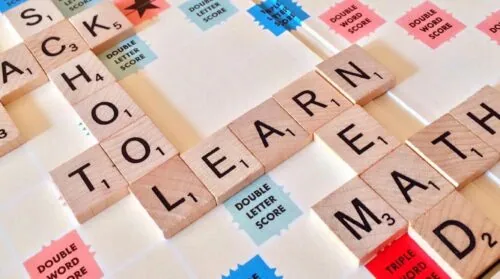Welcome to a crucial discussion on racial justice in education—a core aspect that shapes the futures of countless individuals nationwide. This guide will explore creating equal educational opportunities free from racial biases and inequities.
Why This Guide is Essential
Understanding racial justice in education is vital for anyone stepping into the job market, particularly those who aim to work in diverse and inclusive environments. This guide offers insights into the historical challenges, current situations, and proactive strategies required to ensure that all students have equitable educational experiences.
Whether you are a new job seeker, an educator, or an employer, gaining a deeper understanding of these issues will enable you to contribute effectively to discussions and initiatives to promote racial equality in educational sectors and beyond. Let’s venture on this educational journey together, understanding its complexities and recognizing the role each of us can play in making meaningful changes.
Understanding Racial Justice in Education
Racial justice in education involves creating equitable learning environments that respect and celebrate cultural and racial diversity. Bridging the achievement gaps and promoting inclusive communities that empower all students is crucial.
Key Components
- Equity in Resources: Ensuring every student can access similar resources, such as books, technology, and experienced teachers.
- Inclusive Curriculum: Integrating diverse perspectives and histories into curricula is essential to acknowledging all racial histories and contributions.
- Policy Advocacy: Supporting laws and policies that promote racial equity within educational systems.
Importance of Understanding Structural Inequities
First, it’s vital to understand the deeper cause of racial disparities in schools and address them adequately. Often, these disparities stem from long-standing structural inequalities that require significant and sustained efforts to undo. Programs promoting racial justice in education are about removing barriers and proactively supporting students and communities of color.
For more on how these structural issues can be confronted, consider exploring The Struggles of Minority Students and how deeper cultural understanding is a big step towards equity.
Support from Educational Institutions
Educational institutions play a crucial role in driving racial justice. Schools and colleges have the tools to enact significant change, from revising policies to promoting culturally relevant teaching methods. Moreover, organizations like the NAACP Legal Defense and Educational Fund work tirelessly to fight for racial justice through litigation, advocacy, and public education, which schools can support or partner with.
This exhaustive approach ensures that racial justice in education is holistic and far-reaching, benefiting every part of the school system and its diverse student body.
The Historical Context of Racial Inequity in Schools
Racial inequities in education are deeply rooted in historical systems of oppression and segregation. Understanding this historical context is essential for addressing current inequality.
Segregation and Its Long-term Impact
Historically, racial segregation in schools was enforced by law throughout the United States, creating disparities that have persisted long after such laws were overturned. The segregation of schools led to unequal allocation of resources, which disadvantaged minority communities for generations.
Policies and Practices
- Jim Crow Laws: These laws enforced racial segregation and created significant barriers for African American students to access quality education.
- Redlining: This practice limited the geographical areas where people of color could live, indirectly affecting the quality of schools available to minority students.
The Role of Civil Rights Movements
The fight for desegregation in schools, highlighted by landmark cases like Brown vs. Board of Education, marked a pivotal moment in the struggle for racial justice in education. These movements helped initiate changes, but the remnants of segregation still influence educational opportunities today.
Modern Implications
Current educational policies can still reflect these historical biases through funding formulas, disciplinary practices, or curriculum choices that fail to represent multicultural perspectives. These ongoing issues highlight the need for a sustained commitment to racial justice. For further reading, consider the impact of bilingual education in the US to see how attitudes have evolved.
Acknowledging and addressing this historical context is imperative to understanding and combating racial inequities in education today. Only then can institutions build more equitable educational systems.
Current Challenges in Achieving Racial Justice
Despite past efforts, significant challenges remain in achieving racial justice in education. These issues are complex and multifaceted.
Educational Disparities
Racial disparities in academic achievement and access to advanced courses continue to persist. Also, schools predominantly attended by students of color often receive less funding and fewer resources.
Disciplinary Actions
Studies show that students of color face harsher disciplinary measures compared to their white peers. This contributes to the “school-to-prison pipeline,” affecting their educational and life outcomes.
Cultural Representation in Curriculum
Curricula often lack comprehensive representation, which can affect the engagement and self-esteem of students of color.
Teacher Diversity
There is a notable lack of racial diversity among educators, which impacts mentoring opportunities and role modeling for students of color.
Lack of Inclusive Policies
Many educational institutions still lack policies that explicitly address racial disparities. Without these, achieving racial justice remains a distant goal.
Addressing these challenges requires continuous effort and dedicated action. Moving forward means acknowledging these issues and actively working to resolve them. Therefore, it’s critical to develop targeted strategies that address systemic inequalities and their everyday implications in educational settings.
Strategies for Promoting Racial Equality in Education
Addressing the challenges within educational systems requires actionable strategies that promote racial equality and justice. These strategies encompass various actions, from curriculum changes to policy reforms.
Revised Curriculum
Integrating a broader range of cultural perspectives and histories into the curriculum is critical. This enriches the learning experience for all students and fosters respect and understanding across different cultures.
Equitable Resource Allocation
Schools serving predominantly minority students often lack adequate resources. Ensuring equitable distribution of funding and educational materials supports all students’ success.
Professional Development
Providing teachers and administrators with training on cultural sensitivity and inclusivity can significantly improve the educational environment. These programs should focus on understanding and addressing unconscious biases and promoting equitable teaching practices.
Inclusive School Policies
Developing and implementing school policies that explicitly address racial disparities is essential. These can include equitably structured disciplinary practices and admissions policies that favor diversity.
Community Engagement
Engaging with families and community members in minority areas enhances trust and cooperation between schools and the communities they serve. This collaboration is essential for supporting student achievement and well-being.
Educational institutions can make significant strides toward racial equality by actively pursuing these strategies. Efforts must be ongoing and adapt to changing demographics and societal norms to ensure that racial justice in education is not just an ideal but a reality.
Role of Teachers and Administrators
Teachers and administrators are pivotal in shaping the educational experiences that foster racial justice. Their active involvement can drive substantial changes.
Creating Inclusive Classrooms
Educators can establish classrooms that reflect and celebrate diversity. This includes using materials that honor various cultures and perspectives.
Advocacy and Leadership
Administrators can advocate for policies that support racial justice in schools. Their leadership in promoting these changes is crucial.
Professional Development on Cultural Competence
Continuous training for teachers on cultural competence and anti-racist teaching strategies is essential. This training helps educators understand their own biases and how to teach a diverse student body effectively.
Encouraging Student Dialogue
Facilitating open discussions about race and diversity in classrooms can help cultivate a more understanding and inclusive school culture. This approach allows students to express their experiences and learn from each other.
Moreover, partnerships with organizations focusing on educational equality, like the Education Trust, can provide resources and support for these initiatives. Ultimately, teachers’ and administrators’ commitment to these principles is fundamental in advancing racial justice in education. Their proactive efforts can ensure that all students have the opportunity to thrive in equitable and supportive learning environments.
How Students Can Advocate for Racial Justice
Students play a dynamic role in advocating for racial justice in education. They can lead and inspire change through various impactful activities.
Student Organizations and Clubs
Forming or joining groups focused on racial justice issues offers students a platform to voice concerns and seek change. These organizations can organize events, workshops, and awareness campaigns.
Participation in School Governance
Students can become involved in school governance bodies to advocate for policies that foster racial equality. Their fresh perspectives can be pivotal in driving institutional changes.
Collaborative Projects
Engaging in projects highlighting racial justice, such as public art installations or community outreach programs, helps raise awareness and build community support.
Education and Self-awareness
Students should educate themselves about race and racial injustice’s historical and social contexts. This knowledge empowers them to speak effectively on these issues and promote understanding among peers.
By being proactively involved, students advocate for themselves and contribute to a broader movement toward racial justice in education. Their actions, big and small, play a crucial role in shaping more inclusive and equitable educational environments.
The Impact of Bilingual Education on Racial Justice
Bilingual education holds significant potential in advancing racial justice in education. This approach supports linguistic diversity and enhances mutual respect and understanding among students from different racial and cultural backgrounds.
Enhancing Cultural Awareness
Learning multiple languages can help students appreciate cultural nuances and histories, fostering a more profound respect for diversity. This awareness is crucial in building racially just schools.
Breaking Language Barriers
Bilingual education breaks down the barriers that often separate students based on language, promoting inclusivity and cooperation in the classroom.
Academic Benefits
Studies have shown that bilingual students often perform better across various subjects. This educational approach supports racial equity and contributes to overall academic success.
Addressing bilingualism in education is a pivotal step towards inclusive learning environments. For more literature, consider exploring resources on the Center for Applied Linguistics, which discusses the benefits of bilingual programs in academic settings. Implementing robust bilingual programs is not just about language proficiency but is also a powerful tool in the struggle for racial justice in education. It helps ensure that all students, regardless of their primary language, have equal opportunities to excel and be understood.
FAQs
What is racial justice in education?
Racial justice in education means ensuring that all students have equal access to quality education and resources regardless of race.
Why is racial justice in education substantial?
It promotes fairness and equality, which is crucial for preparing all students to succeed in a diverse society.
How can schools promote racial justice?
Schools can implement inclusive curriculums, equal resource distribution, and policies that tackle racial inequities.
What role do teachers play in promoting racial justice?
Teachers are vital in creating inclusive classrooms and delivering education that respects all cultures and histories.
Can students influence racial justice in their schools?
Absolutely. Students can form groups, participate in governance, and engage in projects highlighting and addressing racial issues.
Conclusion
Racial justice in education is a path to equity and a foundation for a stronger, more inclusive society. By understanding and addressing the historical contexts, current challenges, and necessary strategies for racial equality, we can forge a future where every student has the opportunity to thrive.
Take Action
Your involvement is crucial. You can make a difference whether you’re a student, educator, or community member. Advocate for inclusive policies, participate in educational forums, and support equal opportunity employer organizations that promote racial justice.
Consider joining Diversity Employment today! Upload your resume, find resources, and see how you can contribute to fostering an equitable educational environment. Let’s work together to ensure that racial justice in education becomes a reality for all!




